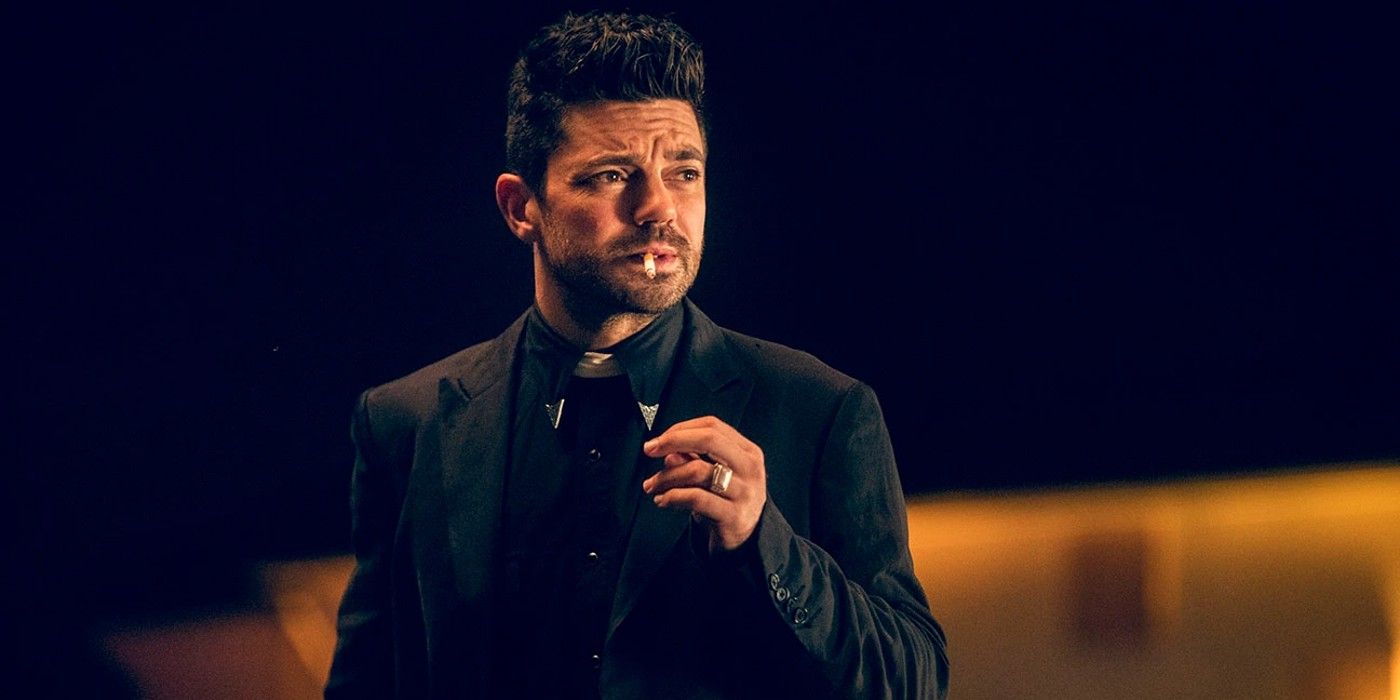
Imagine a world where, with a single command, you can take away an individual’s autonomy and compel any living thing to do your bidding, no matter the task. To be sure, the ability to verbally bend anyone to your will is a tremendous power that undoubtedly comes at the grievous cost of the wielder’s humanity. No one should have the capability to take away a person’s free will by simply uttering a single word. Yet, two famous characters who jumped from page to screen possess just that: Jesse Custer from Preacher and Paul Atreides from Dune.
Although these two protagonists share similar talents that come with huge responsibilities, crucial differences set both of their horrifying gifts apart, raising the question of whose suggestive power is stronger -- The Word in Preacher or the Voice in Dune?

The Voice power in Dune is a speech-based skill developed by the Bene Gesserit that gives its user the ability to control a person’s actions. Paul and the Bene Gesserit achieve this feat by modifying their vocal tones to compel their target to do whatever they say, whether for interrogation purposes or more subtle forms of coercion and manipulation. Interestingly, the Voice utilizes sonic waves in the user’s speech, with their pitch, timbre and tone working in unison to achieve its effects.
Furthermore, an individual’s competence to use the Voice largely depends on their innate abilities and the level of their training, which can also help them develop a resistance to the effects of the suggestive power. Using a Cone of Silence, or a "sound deadening field," also prevents a person using the Voice from controlling their target. Likewise, being deaf or hard of hearing prevents this power from working, as demonstrated in the film when Paul and Lady Jessica make their dramatic escape from their kidnappers after the fall of House Atreides.

The Word power in Preacher, also known as the Word of God or Voice of Command, is a speech-based power that rivals the applied force of God. When Genesis, the supernatural offspring of an angel and a demon, escapes its prison in Heaven, the creature finds a suitable host in the unsuspecting Reverend Jesse Custer. Genesis possessing his body allows the preacher to compel any person to literally do exactly what he tells them to verbatim, no matter how outlandish or impossible the proclamation. For example, when Jesse tells Eugene Root, aka Arseface, in the TV adaption to “Go to hell,” he is instantly transported there.
The Voice of Command from the TV show differs from the source material in some ways, though. In the adaption, only those with a soul have to obey Jesse’s command, whereas, in the source material, even the immortal Saint of Killers cannot resist the strength of Genesis. Furthermore, the Word in the Preacher TV series appears to be more potent than its comic book counterpart, as it defies the realms of possibility, such as sending Eugene to another plane of existence.

One key difference that sets these two powers apart is that the Word in Preacher is so frighteningly absolute that even God himself is not immune to its strength. In contrast, the Voice in Dune isn’t as effective since people can develop a resistance to its power or work around it via technology. Therefore, in a battle for superiority, Preacher would surely win. And even if the argument took the fight to the TV adaption versus the comic, the screen version would still reign supreme because the portrayal of the Word is that of an all-mighty superpower that can traverse space, time and reality with no more than a mere utterance.
0 Comments